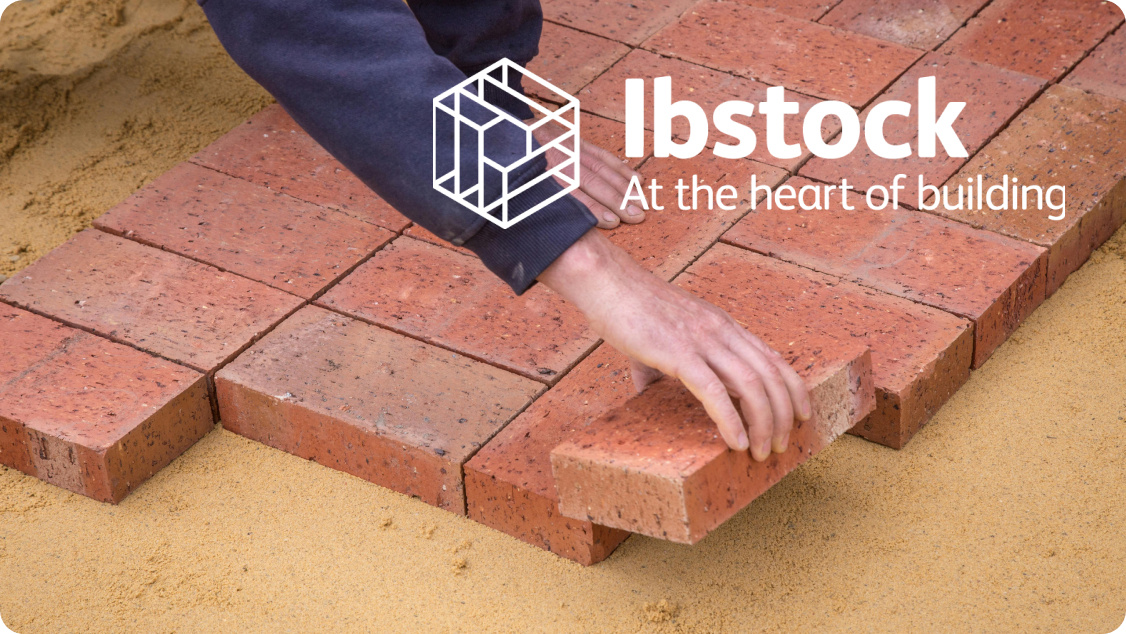
As the construction manufacturing industry changes in response to mounting pressure for more sustainability, transparency in carbon emissions is becoming essential. Brick manufacturer Ibstock has implemented environmental product declarations (EPDs) to provide a clear picture of their brick embodied carbon, as well as other construction products and processes.
“All of our product ‘recipes’ go through the One Click LCA tool, and this has allowed us to fine-tune them as much as possible, and get them to be as low carbon as possible. Also to ensure that anything we’re looking to add into the bricks isn’t going to have a negative impact on them.”
— Jack Topliss, Technical Data Administrator
Increasing carbon transparency with EPDs
Hear how Ibstock is using environmental product declarations (EPDs) to analyse the embodied carbon in their products and make more informed decisions about their materials.
Ibstock — a brick manufacturer focused on the future
Ibstock, based in Leicestershire, has a rich history spanning 200 years. Originally known for brick-making, Ibstock has diversified its product range to include fence posts, railway infrastructure, facades, retaining walls, roofing, flooring, staircases, and lift shafts. With 3 main manufacturing sites and 36 locations in total across the UK, and employing 2000 people, Ibstock is committed to sustainability and innovation as part of their future strategy.
9-step strategy to sustainability success
As they focus on a more sustainable future, Ibstock has defined a strategy which enables embodied carbon optimisation at every stage. Their 2030 sustainability strategy focuses on nine key areas:
- Product innovation: A commercial target to Increase sales of new and sustainable products.
- Dematerialisation: Reducing raw material consumption and the use of plastic packaging.
- Circularity: Reducing the overall amount of waste, and enhancing the reuse of waste materials into their products.
- Employee wellbeing: Ensuring employees are at their best, through health, safety, and wellbeing strategies.
- Inspiring futures: Providing growth opportunities and skill development for all.
- Diversity and inclusion: Increase female senior leadership to 40% by 2027.
- Biodiversity: Achieving a net gain in biodiversity using Biodiversity Metric 2.0.
- Water usage: Reducing mains water usage and increasing the use of harvested rainwater and processed water in factories.
- Carbon reduction: Targeting a 40% reduction in scope 1 and 2 emissions by 2030, and aiming for net-zero emissions by 2040.
Ambitious roadmap to achieve net zero
Achieving net zero emissions is a task that requires Ibstock to take a multifaceted approach, and they have developed a roadmap to help them get there, focusing on operational efficiencies, alternative energy sources, sustainable materials, and enhanced circularity practices.
Operational efficiencies
Operational efficiency is key for Ibstock to reduce carbon emissions within their manufacturing processes. This involves scrutinising every aspect of the production cycle to identify areas where energy consumption can be minimised and processes optimised. For example, the introduction of energy-efficient machinery and the implementation of rigorous maintenance schedules ensure that equipment operates at peak efficiency. Additionally, continuous monitoring and data analysis allow Ibstock to track energy usage in real-time and identify any anomalies or inefficiencies that can be addressed.
Alternative energy sources and fuels
To transition to alternative energy sources and reduce the reliance on fossil fuels, Ibstock is investing in renewable energy technologies such as solar, wind, and biomass to power its manufacturing sites. Solar panels are being installed on factory rooftops, while wind turbines are being explored for sites with suitable conditions. Biomass, which uses organic materials as fuel, offers a sustainable alternative to traditional fossil fuels and helps in managing waste by converting it into energy. Furthermore, Ibstock is investigating the potential of green hydrogen as a clean fuel for its operations, ensuring a future-proof strategy for energy sustainability.
Sustainable materials and sourcing
Sourcing sustainable materials is another key component of Ibstock's path to net zero. This involves working closely with suppliers to ensure that the raw materials used in production have the lowest possible environmental impact. For the pre-cast concrete products, where the majority of emissions come from the A1 stage (extraction and production of raw materials), Ibstock collaborates with suppliers to source lower embodied carbon materials, including recycled aggregates, low-carbon cement alternatives, and other innovative materials that reduce the carbon footprint of the final product.
Circularity and waste reduction
Ibstock is committed to embedding circularity into its operations — the processes that minimise waste and maximise the reuse and recycling of materials. This involves redesigning products to be more durable and easier to recycle at the end of their life-cycle. Waste materials from production processes are reintroduced into the manufacturing cycle wherever possible. Offcuts and defective products from the brick manufacturing process are crushed and used as raw materials for new bricks. This not only reduces waste but also decreases the demand for virgin raw materials, thereby lowering overall emissions.
Innovative technologies and practices
Innovation plays a pivotal role in Ibstock's journey to net zero, and the team is always exploring and adopting new technologies that can drive down emissions. Implementing One Click LCA’s EPD Generator is enabling Ibstock to accurately measure the carbon footprint of products and processes, providing critical data that informs strategic decisions. By modelling different scenarios and assessing their impact on emissions, Ibstock can identify the most effective strategies for carbon reduction.
Partnerships and collaborations
Ibstock takes a collaborative approach to its sustainability vision, partnering with industry bodies, academic institutions, and government agencies, to drive forward the net zero agenda. By sharing knowledge and resources, and working together on joint projects, Ibstock can accelerate the development and adoption of low-carbon technologies across the construction industry.
EPDs — the key to product carbon transparency
Ibstock’s journey with EPDs began in June 2023, when the company started gathering data across its operations, after adopting the EPD Generator tool from One Click LCA and completing the onboarding process to learn how to complete and publish them. By October 2023, Ibstock had its first EPD verified, and within 5 months, over 20 EPDs had been verified. Their long term goal is to provide a comprehensive view of the embodied carbon across various products within the portfolio.
A simple approach to generating EPDs
Ibstock is addressing the challenge of making complex environmental data accessible and understandable to a broad audience by drawing a parallel between environmental product declarations (EPDs) and nutritional labels on food products. The comparison makes it easier for stakeholders, including customers, sales teams, and industry professionals, to understand the process.
The analogy: EPDs as nutritional labels
Just as nutritional labels on food products provide essential information about the contents and nutritional value, EPDs offer detailed insights into the environmental impact of construction materials. Nutritional labels help consumers make informed choices about their diet by listing ingredients, calorie content, and other nutritional facts. Similarly, EPDs present critical data about the carbon footprint, resource use, and overall environmental performance of a product. This transparency allows customers to make more informed decisions regarding the sustainability of the materials they choose.
Simplifying complex environmental data
EPDs can be data-intensive and filled with technical information, which can be overwhelming for those not specialised in sustainability. By comparing EPDs to nutritional labels, Ibstock emphasises the importance of simplifying this data. They include conversion tables in their EPDs that translate technical terms and units into more comprehensible formats.
Empowering informed decisions
The ultimate goal of EPDs, much like nutritional labels, is to empower consumers to make informed choices. In the context of construction, this means providing architects, engineers, contractors, and other stakeholders with the information they need to select materials that align with their sustainability goals. By offering clear, transparent, and easily understandable EPDs, Ibstock enables its customers to prioritise low-carbon and sustainable options.
Engaging with the commercial team
The Ibstock team recognises that their commercial teams play a crucial role in communicating the value of EPDs to customers. To support them, they provide training and resources that frame EPDs in familiar terms. Comparing EPDs to nutritional labels is a core part of this training, as it helps the sales teams explain the concept to clients in a straightforward manner. This approach ensures that commercial teams are not only knowledgeable about the technical aspects of EPDs but also able to communicate the benefits to clients.
One Click LCA and Ibstock — future plans
Ibstock plans to scale its use of One Click LCA’s EPD Generator as a crucial tool to achieve their future carbon reduction goals, identifying and addressing sources of emissions across its diverse product range and manufacturing processes. By integrating the EPD Generator into the development of new product ‘recipes’ and refining existing ones, Ibstock will ensure that all products are as low-carbon as possible. This approach allows for precise monitoring and reduction of carbon emissions at every stage, from raw material extraction to transportation and production.
The tool's ability to model different scenarios and assess their impact on emissions is guiding Ibstock in making strategic decisions to align with its path to net zero.
Carbon Experts Newsletter
Industry news & insights — straight to your inbox
Want to learn more?
Laura Drury • Nov 26 2024
Aileen Carroll • Jun 03 2025
Frida Alfredson • Apr 22 2025
Frida Alfredson • May 09 2025
